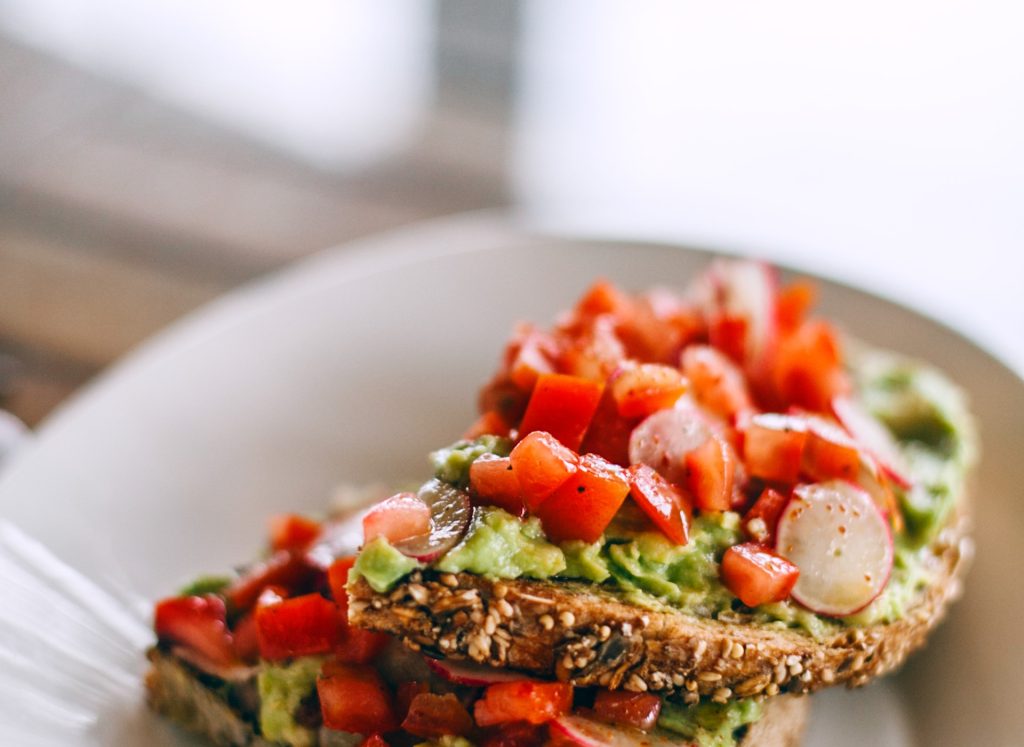Discover the incredible benefits of adopting a vegan lifestyle for heart disease prevention.
What Are the Benefits of Veganism for Heart Disease?
Are you tired of feeling like your heart is giving you a run for your money? Well, fear not! There may be a solution that lies in the power of plants. That’s right, we’re talking about veganism and its potential benefits for heart disease. So, put on your veggie-loving hat and let’s dig deep into this green wonderland.
Understanding Heart Disease: Causes and Risk Factors

Before we dive into the world of veganism, let’s take a moment to understand the enemy we’re dealing with – heart disease. It’s a sneaky foe with a multitude of causes and risk factors. From our genes to smoking like a chimney, there are several culprits at play here. But one factor that has piqued the interest of researchers is diet.
Yes, you heard it right. What we shovel into our mouths can significantly impact the health of our heart. The saying “you are what you eat” takes on a whole new meaning when it comes to the ticker.
When it comes to heart disease, our diet can act as a double-edged sword. On one side, there’s the infamous “Western diet” – rich in processed foods, unhealthy fats, and more sugar than a candy factory. It’s like throwing gasoline on a fire, only to then proceed and stoke it with a stick!
But fear not, for on the flip side, we have the plant-powered paradise known as veganism. This compassionate lifestyle focuses on consuming foods exclusively derived from plants. Think fruits, vegetables, legumes, whole grains, and nuts. It’s a nutrient-packed cornucopia overflowing with goodness for your heart.
Now, let’s delve deeper into the role of diet in heart disease. The Western diet, with its high intake of saturated fats and processed foods, has been linked to an increased risk of heart disease. These foods can raise cholesterol levels, contribute to inflammation, and lead to the formation of plaque in the arteries. It’s like a recipe for disaster, with the heart bearing the brunt of the consequences.
On the other hand, a vegan diet offers a plethora of heart-healthy benefits. By eliminating animal products, vegans naturally consume less saturated fat and cholesterol, which can help lower blood cholesterol levels. Additionally, the abundance of fiber, antioxidants, and phytochemicals found in plant-based foods can reduce inflammation, improve blood pressure, and promote overall cardiovascular health.
Common Risk Factors for Heart Disease
Before we unveil the magic vegan carpet, let’s quickly glance at some common risk factors for heart disease. These sneaky saboteurs can make your heart shudder with fear. High blood pressure, elevated cholesterol levels, obesity, and diabetes are just a few members of this rogue’s gallery.
High blood pressure, also known as hypertension, puts extra strain on the heart and can damage blood vessels. Elevated cholesterol levels, particularly high levels of LDL cholesterol (the “bad” cholesterol), can lead to the buildup of plaque in the arteries, narrowing them and restricting blood flow. Obesity, often a result of an unhealthy diet and sedentary lifestyle, increases the risk of heart disease by putting additional stress on the heart. And diabetes, a condition characterized by high blood sugar levels, can damage blood vessels and increase the risk of heart disease.
These risk factors are not to be taken lightly. They can silently wreak havoc on your cardiovascular system, gradually increasing the likelihood of heart disease. But fear not, for armed with knowledge and the power of a plant-based diet, you can take proactive steps towards a healthier heart.
The Basics of Veganism
Now that we’ve got our heart disease facts straightened out, let’s embark on a journey to explore the basics of veganism. It’s not just a diet; it’s a way of life! Picture a tribe of compassionate warriors, armed with their vegetable spears, ready to conquer their health and the world.

Defining Veganism: More than a Diet
Veganism is more than just a dietary choice; it’s a philosophy that seeks to minimize harm to animals and the planet. It’s a compassionate lifestyle embraced by those who believe that animal exploitation should be a thing of the past. So, if you’re ready to become a superhero for animals and your heart, veganism might just be calling your name.
When you adopt a vegan lifestyle, you not only choose to exclude animal products from your plate but also from your wardrobe and everyday products. This means saying goodbye to leather shoes, wool sweaters, and even cosmetics that have been tested on animals. It’s a commitment to living in harmony with all living beings and making choices that align with your values.
By embracing veganism, you become part of a global movement that is working towards a more sustainable future. You join a community of like-minded individuals who are passionate about creating a world where animals are treated with respect and kindness.
Nutritional Components of a Vegan Diet
Now let’s dive into the nuts and bolts (pun intended) of a vegan diet. It’s important to understand that with great power (of plants) comes great responsibility (to meet your nutrient needs). If you want to keep your heart happy and healthy, you need to ensure you’re getting the right mix of nutrients.
With a vegan diet, you’ll be getting an A+ in fiber. That’s right – your digestive system will be dancing with joy. Fiber helps lower cholesterol levels, keeps your blood sugar stable, and promotes a healthy weight. Plus, it keeps you regular! Talk about a win-win situation for both you and your heart.
But that’s not all – a well-planned vegan diet can provide you with all the essential nutrients your body needs. By incorporating a variety of plant-based foods, you can easily meet your protein requirements. Legumes, tofu, tempeh, and seitan are excellent sources of plant-based protein that will keep your muscles strong and healthy.
When it comes to vitamins and minerals, a vegan diet can be a goldmine. Fruits and vegetables are packed with vitamins A, C, and E, which are powerful antioxidants that protect your cells from damage. Leafy greens like spinach and kale are rich in iron and calcium, essential minerals for maintaining healthy blood and strong bones.
Don’t forget about omega-3 fatty acids! While fish is often touted as the best source of these essential fats, you can easily get them from plant-based sources like flaxseeds, chia seeds, and walnuts. These healthy fats are important for brain health and reducing inflammation in the body.
So, as you can see, a vegan diet is not only good for your heart but also for your overall health and well-being. By choosing plants over animals, you can nourish your body while making a positive impact on the planet.
Veganism and Heart Health: The Connection
Enough with the veganism appetizers; let’s get to the heart of the matter. How does veganism actually impact your heart health? Sit tight, because we’re about to spill the plant-based beans.
When it comes to matters of the heart, it’s all about keeping those arteries flowing smoothly, like heavenly rivers carrying life-sustaining nutrients throughout your body. But imagine a scenario where your arteries resemble a traffic jam at rush hour, clogged with cholesterol. Not exactly the scene you want for your heart’s epic adventure, right?
Well, veganism might just be the hero riding in to save the day. Studies have shown that a plant-based diet can help lower cholesterol levels, reducing the risk of heart disease. Those plant powerhouses – fruits, vegetables, and whole grains – swoop in like caped crusaders, clearing the path and restoring harmony to your arteries.
But that’s not all. The impact of plant-based diets on heart health goes beyond cholesterol levels. We all know high blood pressure is a big baddie when it comes to heart health. It puts your heart under unnecessary stress, making it work harder than a circus acrobat. But fear not, because veganism once again rides in on its mighty nutritional steed to save the day.
Research has shown that adopting a plant-based diet can help lower blood pressure, reducing the strain on your precious heart. The abundance of potassium-rich fruits and vegetables in the vegan kingdom work their magic, helping to regulate blood pressure and keep your heart ticking like a well-oiled machine.
So, if you’re looking to give your heart some extra love, consider embracing veganism. Not only will it help lower your cholesterol levels, but it will also give your blood pressure a friendly nudge in the right direction. Your heart will thank you for it, and you’ll be well on your way to a healthier, plant-powered life.
Nutrients of Interest in a Vegan Diet for Heart Health
Now that we understand how veganism can be a champion for heart health, let’s focus on some nutrients that play vital roles in this green revolution.
Importance of Fiber for Heart Health
We’ve already sung the praises of fiber, but let’s dig a little deeper. This mighty superhero keeps cholesterol at bay, helping to prevent those pesky heart diseases from sneaking up on you. It also helps control blood sugar levels and aids in maintaining a healthy weight. So, don’t skimp on the green stuff!
Role of Antioxidants in Cardiovascular Health
When it comes to heart health, antioxidants are like tiny knights defending your castle from harm. They swoop in and neutralize those pesky free radicals that cause oxidative stress, reducing inflammation and preventing damage to your heart cells. Fruits and veggies are packed to the brim with these fearless fighters, so load up your plate and let the battle begin!
Addressing Common Concerns about Vegan Diets
Despite the many benefits, some naysayers have concerns about vegan diets. But fear not, dear readers, for we have the answers to your plant-powered worries. So, let’s dive into the vegan world once more and address these common concerns head-on.
Ensuring Adequate Protein Intake
“But where will I get my protein?” This is the question that haunts many budding vegans. Rest assured, my friends, protein is abundant in the plant kingdom. Legumes, tofu, tempeh, and even ancient grains like quinoa are all great sources of this muscle-building nutrient. So, go on and flex those vegan biceps without hesitation!
Managing Vitamin B12 and Iron Levels
Vitamin B12 and iron are two vital nutrients that might require a little extra attention in a vegan diet. But fear not, brave souls, for fortifying your diet is as easy as pie (vegan pie, of course!). Vitamin B12 can be found in certain fortified foods or through supplements, while iron-packed powerhouses like leafy greens, legumes, and seeds will keep your iron levels in check.
So, there you have it – a whirlwind tour through the heart-loving world of veganism. Whether you choose the path of plants for ethical reasons or to give your heart a fighting chance, the benefits are numerous. So, let’s put those veggies on a throne, wear our plant-powered capes proudly, and march on towards a heart-healthy future!







